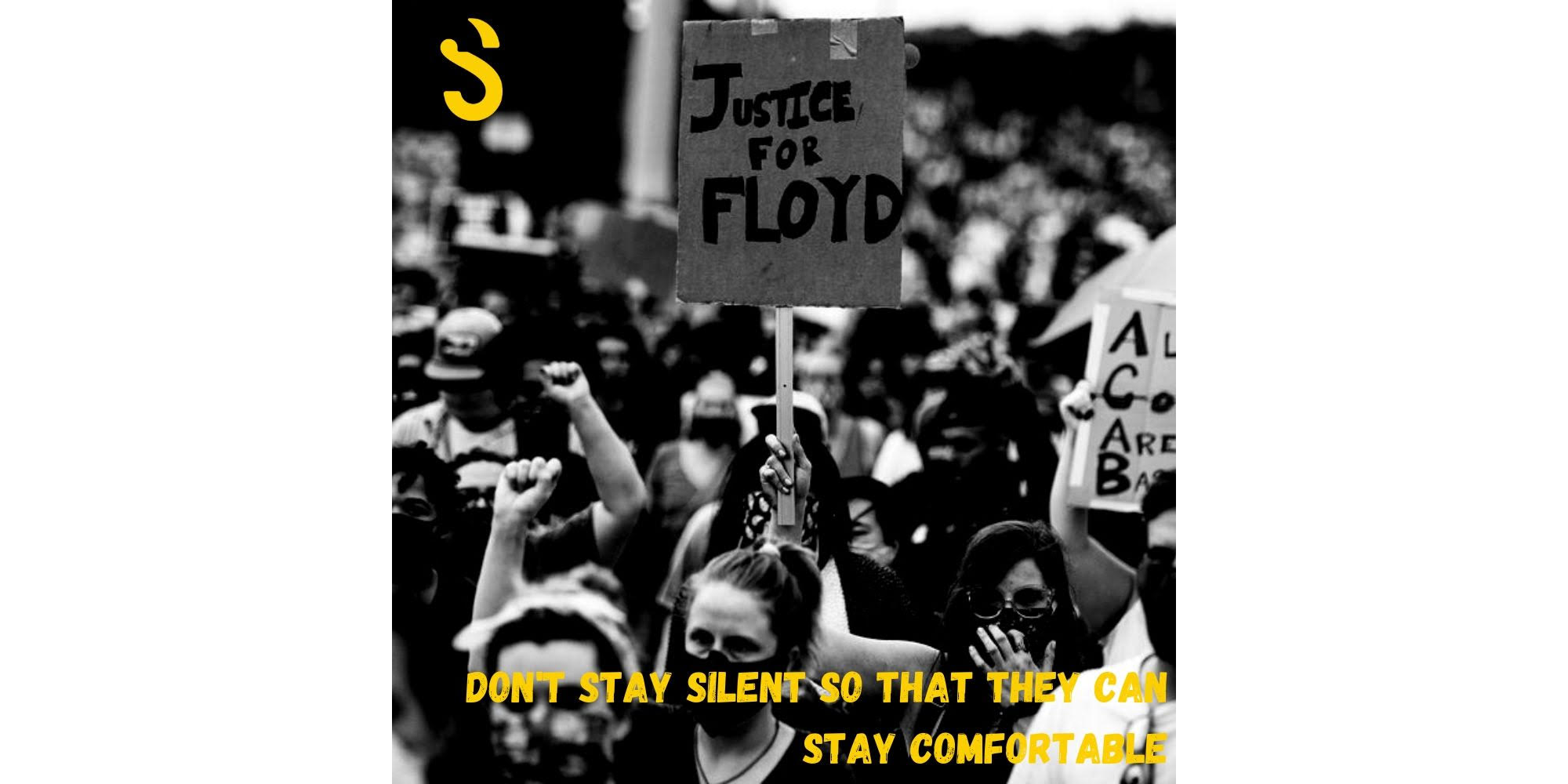Music has always served as a means for James Seykot, KLN ‘19, to process the events of the world. Thankfully, the media studies and production graduate found others who related to this practice. Rahmi Halaby and Vincenzo DiTrolio, both alumni of Gettysburg College in Gettysburg, Pennsylvania, connected with Seykot over their shared love for music and its healing power. Along with another colleague, they make up Savory Sounds, a collective of music enthusiasts who aim to showcase music that is meant to be “savored.” One of their most recent Spotify playlists titled “Don't Stay Silent So That They Can Stay Comfortable” is a collection of protest-related music that speaks to current anti-racism and anti-police brutality uprisings across the U.S. and abroad.
Seykot, who founded The Music Business club at Temple and was creator and co-host of R&B Now on Temple’s WHIP Radio, was introduced to Savory Sounds when he reached out to Halaby, the collective’s founder. Savory Sounds’s content includes other playlists, guest DJ sessions and articles.
Halaby first pitched the idea of the protest music playlist to process the feelings that come along with the issues the protests are combatting. He believes that music can be “a more palatable way to teach history,” especially for those interested in music history like him.
“I was kind of struggling with words and I think just in general music can communicate things well that I may not be equipped to communicate,” Halaby says.
After contributing early hip-hop and rap as well as Civil Rights-era music, Halaby asked Seykot and DiTrolio to add songs that reflected the energy of protest movements. Seykot thought the suggestion was right on time.
“The day [Rahmi] suggested [the playlist] was the day I was also thinking about maybe we could use this small platform that we’ve been working on to add to the conversation in an almost novel way,” Seykot says.
Seykot added personal favorites, but also called on Klein College of Media and Communication professors Nancy Morris and Scott Gratson — who both study protests — to recommend songs that could fit comfortably on the playlist. Morris, whose research interests include Latin American protest music, suggested among other tracks a Spanish protest standard "El pueblo unido jamás será vencido" [“The People United Will Never Be Defeated"]. Gratson, who teaches a special projects class on LGBTQ Pride and assists students who participate in an experiential internship with New York City Pride, suggested more than 30 songs from various decades and genres including “Strange Fruit” by Billie Holiday and “Born This Way” by Lady Gaga.
The members of Savory Sounds are not sure what other media they will create that will relate to protests and movements, but they hope that whatever they do continues to promote music as an effective tool to inspire change.
“Music’s a great medium to kind of get that entry point into understanding what’s going on,” DiTrolio says. “I view it as a good way to kind of start the conversation.”
In the meantime, the collective is continuing to look at ways to connect with audiences. Seykot was recently moved by the music selection and the score in film director Spike Lee’s new Netflix film Da 5 Bloods, which explores relationships between Black soldiers who fought in the Vietnam War. The film’s impressive music selection and score prompted Seykot to want to highlight the movie through the collective in some way. His enthusiasm shows that, like the protest music playlist, there will always be opportunities for the collective to use music as a jumping-off point to discuss larger issues.

